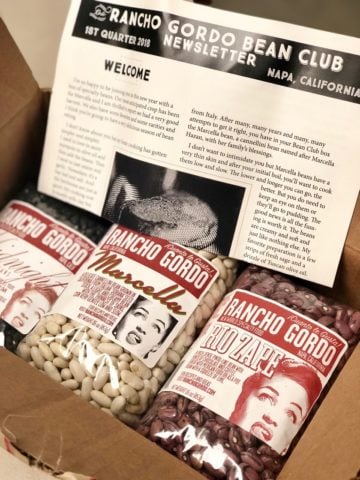How did I get here?
In 1999, I decided I was going to cook dinner every night. I don't exactly remember what prompted this; it was a gradual thing, my interest in cooking.
It started with wine. Diane came back from a trip to Europe with her sister, Jackie, and said "you know, they have a glass of wine with dinner every night...". I can't exactly say why, but that struck a chord in me, and I was off and running.
Then, to go with the wine, I wanted to learn how to cook. NPR had an intervew with Barbara Kafka, about her book Roasting-A Simple Art . In it, she describes how to make a great Thanksgiving turkey in about two hours - roast it in your oven, with the oven set as high as you can. Then, remove the turkey, and make a sauce with the pan drippings and some water. I tried it, and it was great! So I went out and bought the book, which is based on this premise - roast everything at 500*F. And...it didn't work so well for me. It's great for the turkey; chicken, too. You get nice, crispy skin, even if the breast meat is a bit dry - but the pan sauce covers up for that. Unfortunately, this method of cooking is guaranteed to set off your fire alarm every time you use it. And most things (other than turkey) come out dry and overcooked.*
. In it, she describes how to make a great Thanksgiving turkey in about two hours - roast it in your oven, with the oven set as high as you can. Then, remove the turkey, and make a sauce with the pan drippings and some water. I tried it, and it was great! So I went out and bought the book, which is based on this premise - roast everything at 500*F. And...it didn't work so well for me. It's great for the turkey; chicken, too. You get nice, crispy skin, even if the breast meat is a bit dry - but the pan sauce covers up for that. Unfortunately, this method of cooking is guaranteed to set off your fire alarm every time you use it. And most things (other than turkey) come out dry and overcooked.*
*Ask Diane about the "Chrismas Goose" I cooked the one time. Or anyone else in the family I cooked for - I became famous for getting the batteries out of the fire alarm in under 15 seconds.
Not willing to let a little thing like fire alarms stop me, I kept cooking. I bought a few more cookbooks, I got a bit better, I started to think I could cook. Of course, Diane had to keep asking me - "Shouldn't a meal include vegetables? Meat and potatoes are okay, but I could use something green in my diet." A few years later, I was cooking fairly often; I even got past the vegetable side dish hurdle on occasion. But I didn't feel like I could just "whip something up" based on what was in the refrigerator.
I was laughing, and cringing at the same time. That struck a nerve - I wasn't learning how to cook; I was learning how to follow recipes.
THAT is when I decided to become a cook - to cook dinner every night, and to learn how to cook based on the ingredients I have on hand.
The key was Pam Anderson's How to Cook Without a Book . In it, she explains many of the basic techniques in cooking, and then how to vary the ingredients and flavors of that technique in many, many different ways.
. In it, she explains many of the basic techniques in cooking, and then how to vary the ingredients and flavors of that technique in many, many different ways.
I started with "the saute". 12" skillet (NOT non-stick), heated over medium-high with a thin coating of vegetable oil in it. Cook four chicken breasts, salted, peppered, and coated with flour, for 4 minutes per side. Remove breasts; put ½ cup chicken broth in the pan, and bring to a boil, scraping up the browned bits in the pan to make the sauce.
What Pam Anderson makes sure you know in her book is: this isn't just about chicken breasts, and it isn't just about a chicken broth based sauce - this is "a saute" and "a pan sauce". This is how you cook any tender meat that's 1" thick (or less) - and this is how you use the browned bits that the saute creates as the base of an almost infinite number of sauces.
Those sauces are pretty similar in preparation, but very different in taste: ½ cup of liquid, with some variations in the seasoning. French style chicken breasts? Add shallots, chicken broth, lemon, capers. Voila! Lemon-caper chicken. (Or veal. Or pork). Want Italian? Make your sauce with garlic, a can of diced tomatoes, and some basil. Sprinkle some parmesan on the chicken breasts, serve on pasta, and you have Chicken Parmesan.
What this opened up to me was that the basis of all cooking is three things: ingredients, base techniques, and flavor profiles. What are the right cooking techniques for the main ingredients you have, and what flavor profiles do you want to use with them? If you know the variations on those three things, and you can cook almost anything in the western repertoire of food. Know how make chili, texas style, with cubes of beef chuck? You know how to make a braise - a perfect technique for tough meats. Brown the meat, brown some aromatics (onion, garlic), add liquid to just cover the meat (tomatoes, beef broth) and some seasonings (chili powder). Put this in a pot with a lid, and simmer on low heat for a few hours, until the beef is fork tender. Now, with a little variation, you know how to make everything from Beef Stew to Beef Bourginon, to Beef Paprikash, or even to Coq Au Van - it's just a braise! When I see a sale on chuck roast, chicken thighs, pork shoulder - I now have a wide range of options - what do I have in the house? What flavors do I want to do with this?
Later on, I read Michael Ruhlman's The Making of a Chef , where he describes what you are taught at a real culinary school. It explained what I had learned*: training is about the basic techniques for specific ingredients, and the flavor combinations that go with different cuisines. Put those together, and you have a professional chef!**
, where he describes what you are taught at a real culinary school. It explained what I had learned*: training is about the basic techniques for specific ingredients, and the flavor combinations that go with different cuisines. Put those together, and you have a professional chef!**
*Only, he describes it with style - I'm fumbling around with how to describe how amazing it felt when this concept fell into place for me. And, Alton Brown - my hero! - also had a hand in my learning this - can't forget to give him a shout-out.
**Well, this idea, and a willingness to work 12 hour days, 6 days a week, for minimal pay, and have your busiest days be weekends and holidays. Also, "I'm dead" is the only good excuse for not coming in to work.
Oh, and Barbra Kafka, Roasting at 500*F, and the smoke detector? She was right - it's just high heat roasting, followed by deglazing the pan. As long as you use the technique with the right ingredients, it works great! But I think you should turn the oven down to 450*F - it gives me a few more minutes before I have to pull the batteries out of the smoke detector.
Reading list:





Jorge says
Such a great post.
As I finished the above sentance I began remembering my earliest food adventures.
As a six year old or maybe younger, (not much supervision) don't put hot milk in a thin glass, (they break!)
I've always had an interest in experimenting with my food.
After losing my sight it seems like lots of things were put on hold.
But I remember ordering a braille cook book as a teenager, and trying things out, oh the terrible things I made:)
I'm glad my interest in playing with my food has recently been rekindled.
Thanks a lot for your website and all the time and effort you put into it.
I love reading it, I spend way too much time making myself hungry on it.